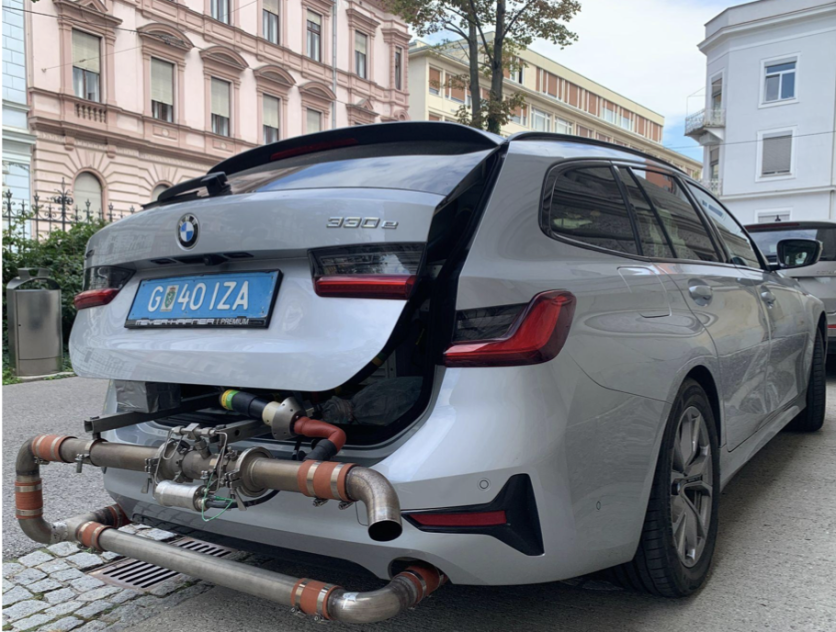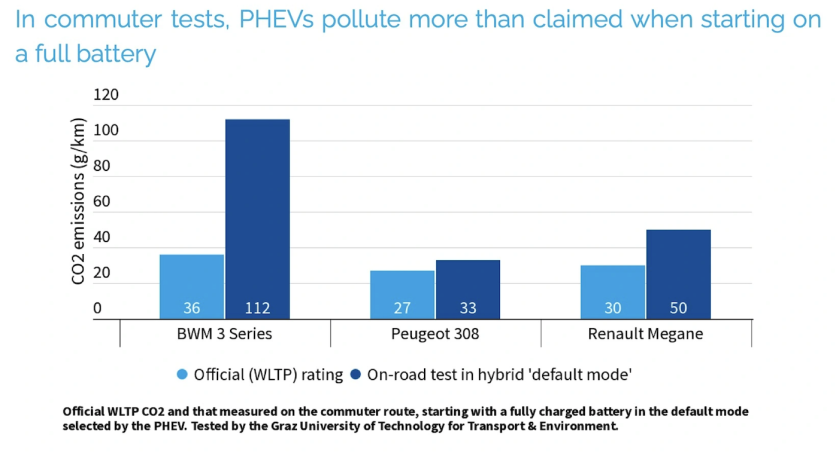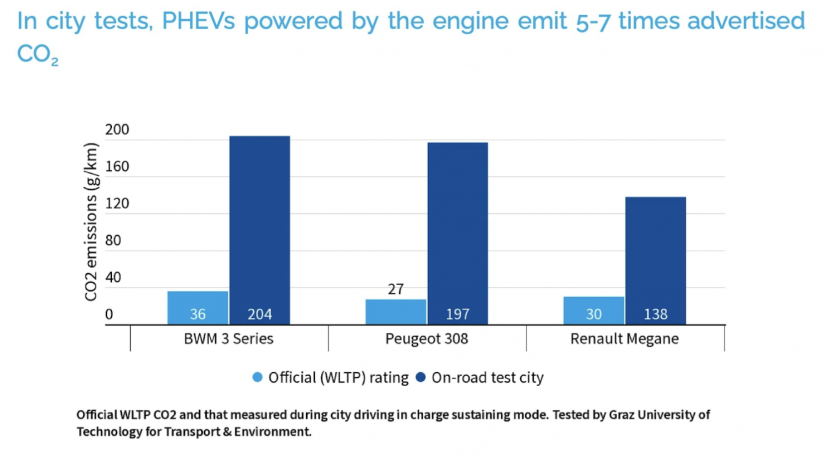Plug-in Hybrid Electric Vehicles (PHEV) are considered stepping stones from exclusively internal combustion engines (ICEs) to clean energy. Still, researchers are now refuting this with a new study. Their research found that PHEVs are "dirtier" than they thought, claiming that it emits five to seven times more carbon dioxide than expected.

The tests centered on three cars in Europe, namely sports utility vehicles from BMW, Peugeot, and Renault, mainly focusing on its dedicated ICE engine is running.
Plug-In Hybrid EVs Are Dirty, Emits Significant CO2
Hybrids will help the public transition and tell them that electric vehicles are creations that could help them get from point A to B.
But this recent study from the Belgian NGO Transport & Environment and the University of Technology in Gratz, Austria, have found that it is not the "clean energy" car that it is marketed to the public, mainly as it emits significant carbon dioxide, five to seven times more than expectations.
The team installed a Portable Emission Measurement System on three cars: the BMW 3 xDrive series, Peugeot 308, and the Renault Megane.

In the charts, it emits more CO2 waste into the environment, more than the advertised claims of these companies, even on a full battery.
They also have significantly less electric range on tests than the company advertised.

However, when tested on its engine-only use and power, its carbon dioxide emissions are five to seven times more polluting compared to their emission claims.
Should PHEVs Be Considered an Alternative?
According to Electrek, these companies claim unrealistic numbers regarding their carbon dioxide emissions compared to the actual tests done by the researchers. It may also serve as a precaution to those who plan to transition to PHEVs, especially considering its emissions to use as a daily driver.
PHEVs vs. Battery EVs
Times are changing, and people are looking for alternatives to gas or diesel engines that have been the standard workhorse for transportation in the past decades. Getting a hybrid car is like utilizing the best of both worlds, as the companies and manufacturers have advertised, having both batteries and engines to power the vehicle.
Companies that have not yet transitioned to a fully-electric setup centered on delivering plug-in hybrids, and this is something they claim to reduce emissions significantly.
This is also part of the American culture that still prefers fuel-powered vehicles over hybrids and fully-electric cars, in a study from Deloitte in 2022. The market still wants traditional vehicles over these modern and clean ones.
In the end, automakers are still focusing on creating the traditional experience but slapping in a battery to provide the extra range, one that could help fuel economy and the environment. However, this recent study from the University of Technology is different from what it advertised, as they found that it emits more than what it advertised, which is unknown to many.
Related Article : Whistleblower Reveals that Plug-in Hybrid Units Use More Gas than Initial Estimates

ⓒ 2026 TECHTIMES.com All rights reserved. Do not reproduce without permission.




